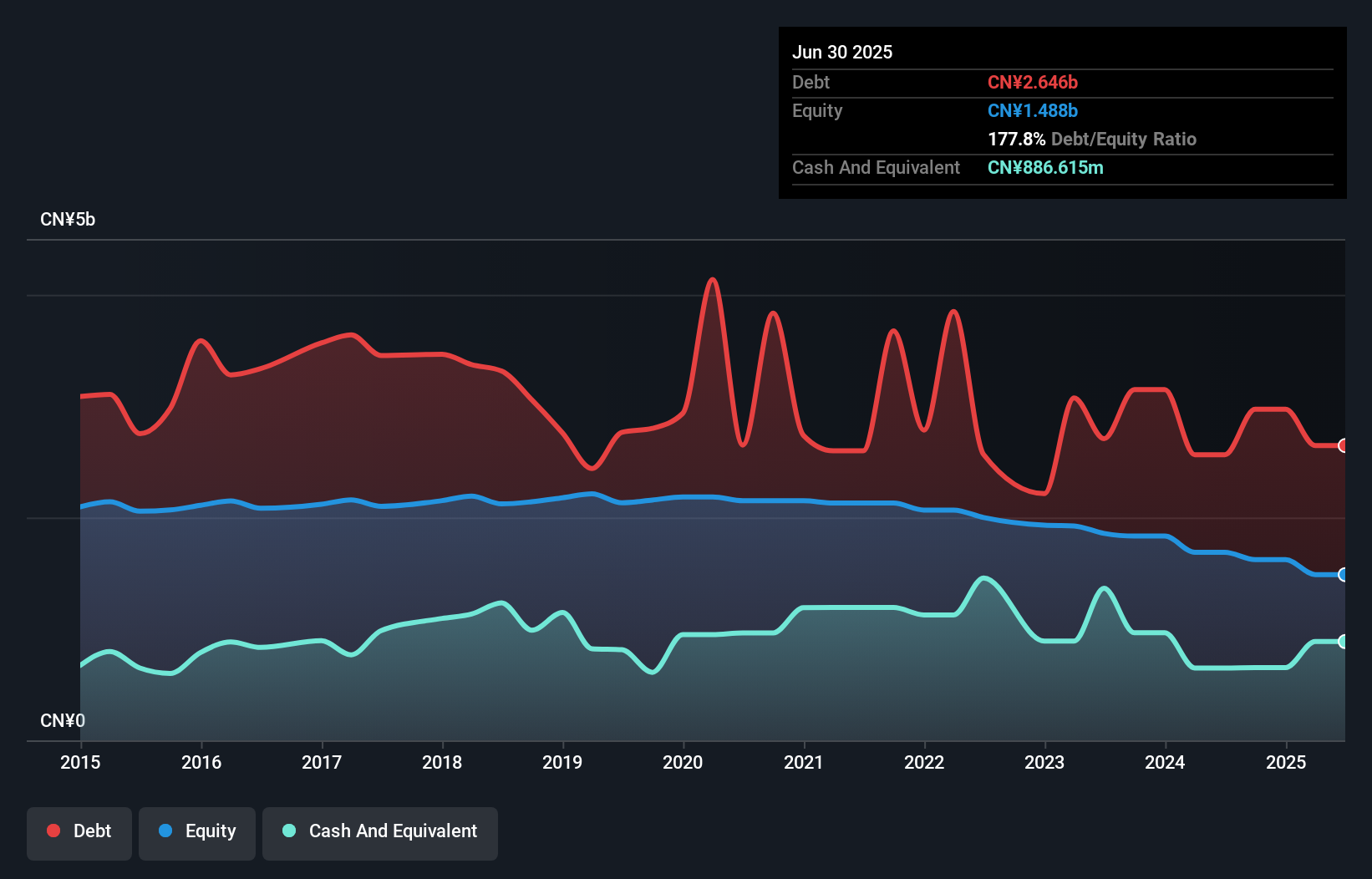- Hong Kong
- /
- Food and Staples Retail
- /
- SEHK:814
Is Beijing Jingkelong (HKG:814) Using Debt In A Risky Way?
Warren Buffett famously said, 'Volatility is far from synonymous with risk.' It's only natural to consider a company's balance sheet when you examine how risky it is, since debt is often involved when a business collapses. Importantly, Beijing Jingkelong Company Limited (HKG:814) does carry debt. But the more important question is: how much risk is that debt creating?
Why Does Debt Bring Risk?
Debt assists a business until the business has trouble paying it off, either with new capital or with free cash flow. Part and parcel of capitalism is the process of 'creative destruction' where failed businesses are mercilessly liquidated by their bankers. While that is not too common, we often do see indebted companies permanently diluting shareholders because lenders force them to raise capital at a distressed price. Of course, plenty of companies use debt to fund growth, without any negative consequences. When we examine debt levels, we first consider both cash and debt levels, together.
What Is Beijing Jingkelong's Net Debt?
The chart below, which you can click on for greater detail, shows that Beijing Jingkelong had CN¥2.65b in debt in June 2025; about the same as the year before. However, because it has a cash reserve of CN¥886.6m, its net debt is less, at about CN¥1.76b.

How Healthy Is Beijing Jingkelong's Balance Sheet?
We can see from the most recent balance sheet that Beijing Jingkelong had liabilities of CN¥4.45b falling due within a year, and liabilities of CN¥466.2m due beyond that. Offsetting these obligations, it had cash of CN¥886.6m as well as receivables valued at CN¥1.09b due within 12 months. So its liabilities total CN¥2.95b more than the combination of its cash and short-term receivables.
This deficit casts a shadow over the CN¥117.2m company, like a colossus towering over mere mortals. So we'd watch its balance sheet closely, without a doubt. After all, Beijing Jingkelong would likely require a major re-capitalisation if it had to pay its creditors today. There's no doubt that we learn most about debt from the balance sheet. But you can't view debt in total isolation; since Beijing Jingkelong will need earnings to service that debt. So when considering debt, it's definitely worth looking at the earnings trend. Click here for an interactive snapshot.
View our latest analysis for Beijing Jingkelong
Over 12 months, Beijing Jingkelong made a loss at the EBIT level, and saw its revenue drop to CN¥9.1b, which is a fall of 8.0%. That's not what we would hope to see.
Caveat Emptor
Importantly, Beijing Jingkelong had an earnings before interest and tax (EBIT) loss over the last year. Indeed, it lost a very considerable CN¥59m at the EBIT level. Reflecting on this and the significant total liabilities, it's hard to know what to say about the stock because of our intense dis-affinity for it. Like every long-shot we're sure it has a glossy presentation outlining its blue-sky potential. But the reality is that it is low on liquid assets relative to liabilities, and it lost CN¥178m in the last year. So we're not very excited about owning this stock. Its too risky for us. The balance sheet is clearly the area to focus on when you are analysing debt. But ultimately, every company can contain risks that exist outside of the balance sheet. We've identified 2 warning signs with Beijing Jingkelong (at least 1 which is a bit unpleasant) , and understanding them should be part of your investment process.
When all is said and done, sometimes its easier to focus on companies that don't even need debt. Readers can access a list of growth stocks with zero net debt 100% free, right now.
Valuation is complex, but we're here to simplify it.
Discover if Beijing Jingkelong might be undervalued or overvalued with our detailed analysis, featuring fair value estimates, potential risks, dividends, insider trades, and its financial condition.
Access Free AnalysisHave feedback on this article? Concerned about the content? Get in touch with us directly. Alternatively, email editorial-team (at) simplywallst.com.
This article by Simply Wall St is general in nature. We provide commentary based on historical data and analyst forecasts only using an unbiased methodology and our articles are not intended to be financial advice. It does not constitute a recommendation to buy or sell any stock, and does not take account of your objectives, or your financial situation. We aim to bring you long-term focused analysis driven by fundamental data. Note that our analysis may not factor in the latest price-sensitive company announcements or qualitative material. Simply Wall St has no position in any stocks mentioned.
About SEHK:814
Beijing Jingkelong
Engages in the retail and wholesale distribution of daily consumer products.
Good value with mediocre balance sheet.
Market Insights
Community Narratives



